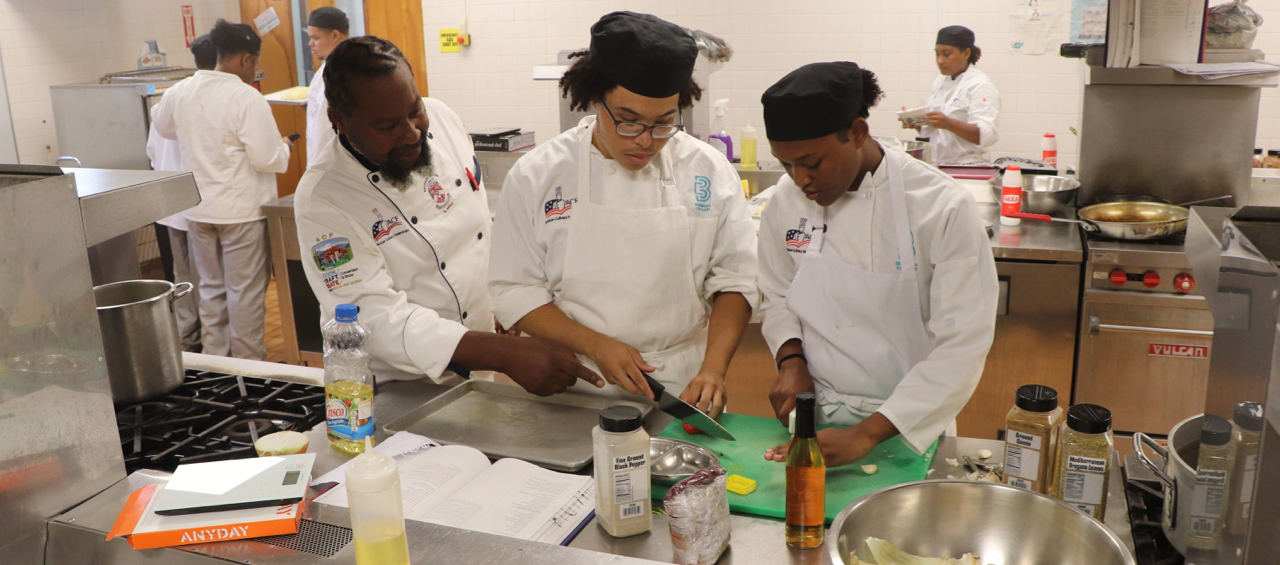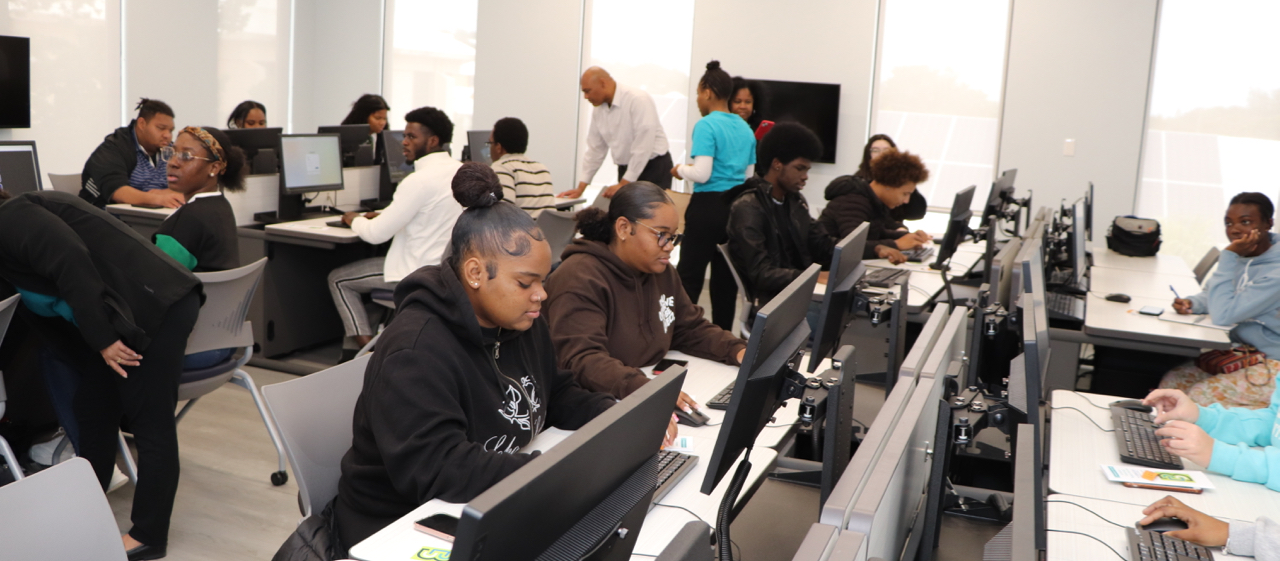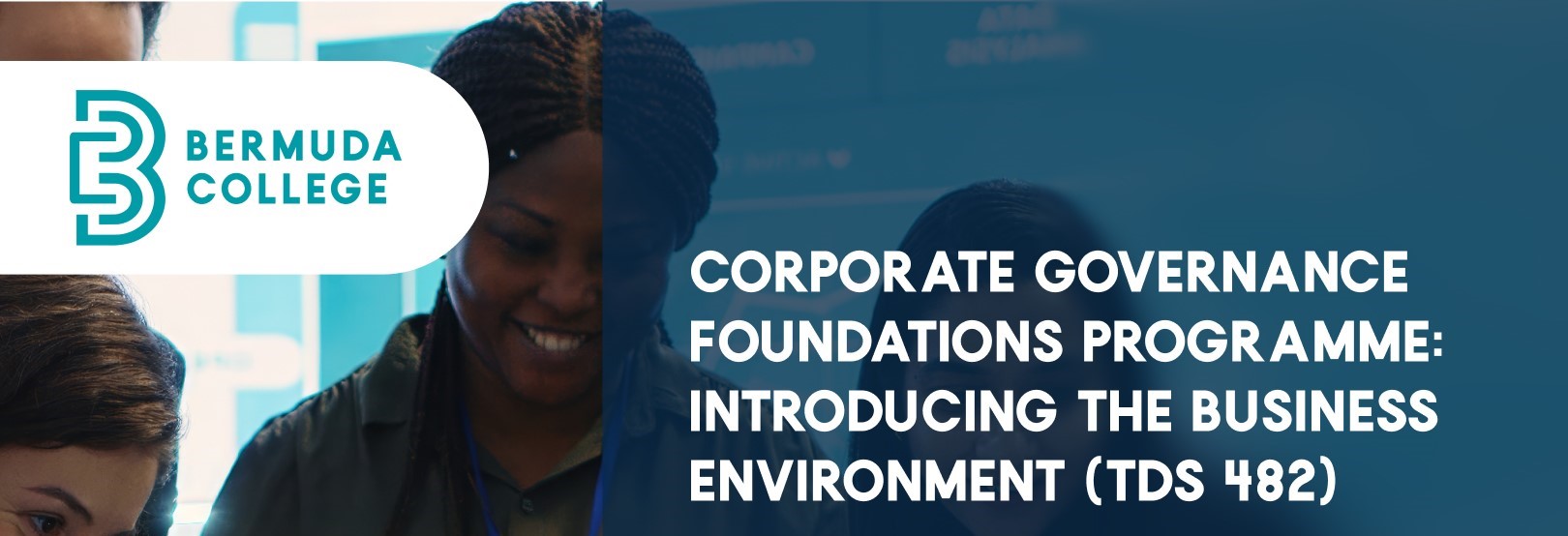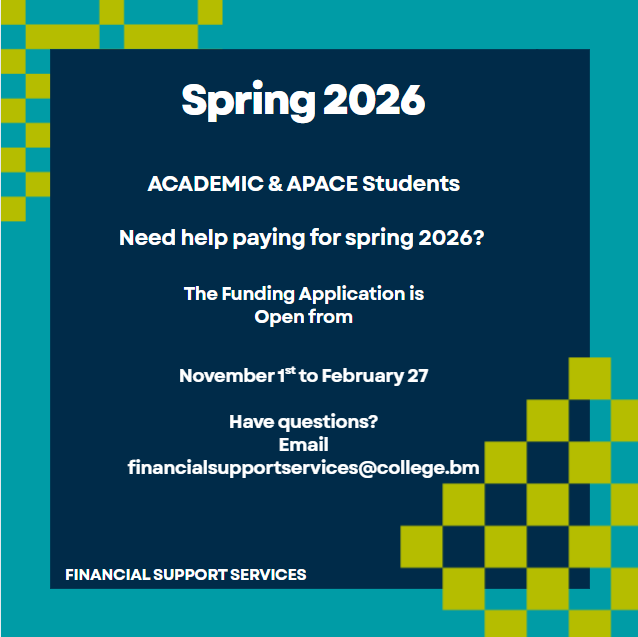Dual Enrolment
Dual Enrolment Programme
What is Dual Enrolment
A programme that allows senior school students to earn credit towards an associate, certificate and diploma degree. Dual enrolment courses qualify for academic credit in the Bermuda Public Senior School and post-secondary institutions. Tuition is waived for dual enrolment students in the Bermuda Public Senior Schools. However, they are responsible for the purchase of textbooks and other equipment.
Available Programmes
Business, Hospitality and Technical Education
Associate of Science
General Associate Degree Programmes
Dual enrolment allows students to pursue an advanced curriculum relevant to their individual post secondary interest while enrolled in high school. Programme Requirements
To be eligible for the Dual Enrolment programme a student must:
Academic advisors are extremely important. The Primary Role Advisor for dual enrolment students is Mrs. Takia Bean - This email address is being protected from spambots. You need JavaScript enabled to view it.Academic Advising
Guidelines
Note: All students must maintain 2.0 GPA. Failure to do so warrants the return of the student to their respective high school.Enrolment options for the Associate Degree Programme
Full Time Students
Part Time Students
The Certificate for Nursing Assistants was developed in collaboration with the Bermuda Nursing Midwifery Council. It prepares participants with the prerequisites needed to become registered with the Bermuda Nursing Council as nursing assistants in the health care industry. Participants will cover topics such as Vital signs; Medical Terminology; Caring for Seniors and others in Need of Medical Care; Professional Regulations; Legal and Ethical Issues in the Health Care Industry. Program Requirements: Note: The certificate is 2 semesters long providing clinical experience.Certificate for Nursing Assistants
Visit the Nursing Assistants page to learn more.
The Emergency Medical Technician Programme prepares graduates 18 years and older to initiate assessment and care of the ill or injured patient. After successful completion of the programme, each graduate must succeed at the National Registry of Emergency Medical Technicians (NREMT) practical and computer based knowledge examinations. This programme provides opportunity to prepare for entry-level positions in the Emergency Medical Services profession for possible employment in a variety of pre-hospital, hospital, Fire and Rescue Services and industrial settings. Program Requirements: Note: The EMT Programme is one semester long providing clinical experience. Basic Emergency Medical Technician (EMT)
Visit the EMT Progamme page to learn more.
Test Format: Passages are a mix of previously published (authentic) and comissioned texts. Encourage students to prepare by brushing up on the skills needed to be successful in first-year college courses. Utilize ACCUPLACER's free print and online student resource here. Free online study App-Practice from any phone, tablet, or electronic device with our free web-based study app here.CPT
Next Generation Reading:
Content Domains:
Next-Generation Quantitative Reasoning, Algebra, and Statistics (QAS)
Test Format:
Content Assessed:
Next-Generation Advanced Algebra and Functions (AAF)
Test Format:
Content Assessed:
WRITEPLACER Essay
How to Prepare
Centre for Learning and Academic Success (CLAS)
What happens if I fail a course that has a second part? You will not be able to move on and will have to return back to high school. What happens if I don't receive a 2.00 GPA at the end of the semester? You will have to return back to high school. What happens if I don't show up for a final exam? BC stated that if you don't show up for a final exam you will receive an automatic F grade. What happens if I don't submit my assignments by the deadline? Your instructor will give you a zero grade and this can affect your overall semester/cumulative GPA. Do my instructors take attendance? Yes! Will my instructor notify my parents if I don't hand in assignments or don't attend class? No, but they will communicate with the high school liaison. Am I responsible for my textbooks and supplies? Yes, students are responsible for the purchases of course materials - textbooks, calculators, textbook access codes, uniforms, knifes, etc.FAQ
GENERAL EDUCATION
General Education
Graduates and students of Bermuda College should exhibit general learning outcomes that serve as the foundation for success in their discipline and in society. These learning outcomes, central to the mission of the college, are an integral part of the curriculum.
General Education Learning Outcomes
1. Communication Skills
- Read to retain, to restate, and to apply ideas for a variety of purposes.
- Listen to retain, to restate, and to apply ideas for a variety of purposes.
- Write effectively in a variety of contexts and formats.
- Speak effectively in a variety of contexts and formats.
2. Critical Thinking Skills
- Distinguish between facts, feelings, judgments, and inferences.
- Integrate information and develop rational, reasonable interpretations, inferences and connections.
- Be open to new information, methods, cultural systems, values and philosophies.
- Devise solutions for problems and issues.
- Think creatively.
3. Quantitative and Reasoning Skills
- Make reasonable estimates.
- Perform computations using appropriate methods.
- Analyse, interpret and explain (and be able to generate) numerical information presented in tables, charts, and graphs.
- Use critical thinking skills in a mathematical context.
- Use scientific principles to solve problems.
4. Information Literacy
- Collect, verify, document, organize, and investigate information from a variety of sources, within an ethical context.
5. Cooperative & Collaborative Skills
- Interact effectively with others.
- Recognize and respect cultural diversity and understand how it influences human thought and behaviour.
6. Technology/Computer Literacy
- Be able to use computers and technology efficiently, from the perspective that such skills are necessary in today’s society.
- Have the basic knowledge of computer operations (copying files, printing documents, etc.); be able to use the Internet/World Wide Web (browsers, search engines), basic software applications (word processing, spreadsheets, etc.) and email functions (sending/receiving messages, attaching files, etc.).
- Be able to “self-teach”, that is to learn new programs and/or tasks as they are encountered.
General Education Components
Humanities
- Art and Design
- Art History
- Education
- Film
- French
- History
- Music
- Philosophy
- Spanish
- Religious Studies
- English Literature at 2000-level (excluding ENG 2212)
Social Sciences
- Economics
- Earth & Environmental Studies at 2000 level
- Political Science
- Sociology
- Psychology
- Social Work
Natural Sciences
- Biology
- Chemistry
- Earth & Environmental Studies
- Physics
Academics
Academic Programmes
Associate Degrees
Associate Degrees provide the first two years of College that can be transferred to overseas universities or used to go directly into the workforce.
Associate of Arts Degree Programmes
Associate of Applied Science Degree Programmes
Associate in Science Degree Programmes
- Associate of Science
- Associate of Science (Actuarial Science)
- Associate of Science (Computer Information Systems)
- Associate of Science (Education)
- Associate of Science (Marine Science)
- Associate of Science (Nursing)
- Associate of Science (Pre-Health Science)
- Associate of Science (Pre-Health Science - Pre-Med)
Diplomas
Diploma programmes are designed to provide the graduate with skills and competencies for immediate employment into a particular occupational field. Students may be able to transfer some of these credits into an associate degree programme at a later time depending on the programme of study.
Diploma Programmes
- Diploma in Computer Network Administration
- Diploma in Computer Network Technology
- Diploma in Culinary Arts
- Diploma in Food & Beverage Management
- Diploma in Heating, Ventilation & Air Conditioning Technology
- Diploma in Hospitality Management
- Diploma in Motor Vehicle Technology
- Diploma in Plumbing Technology
- Diploma in Wood Technology
Certificates
Certificate programmes are designed to provide the graduate with the opportunity for immediate employment in a particular occupational field. The certificate documents that the student has attained job entry competence and is ready at an entry level employment standard. Note: Certificate courses will not normally transfer into degree programmes.
Certificate Programmes
Continuing Education - Pace Programmes
The Division of Professional & Career Education (PACE), through our partnerships, offers you access to training and qualifications of a national and international standard. PACE offers Certificates, Professional Designations, Short Training Courses, Exam Review and Online Professional Development Courses.
Subcategories
External Academic Programmes
Programmes offered at Bermuda College from External Institutions













